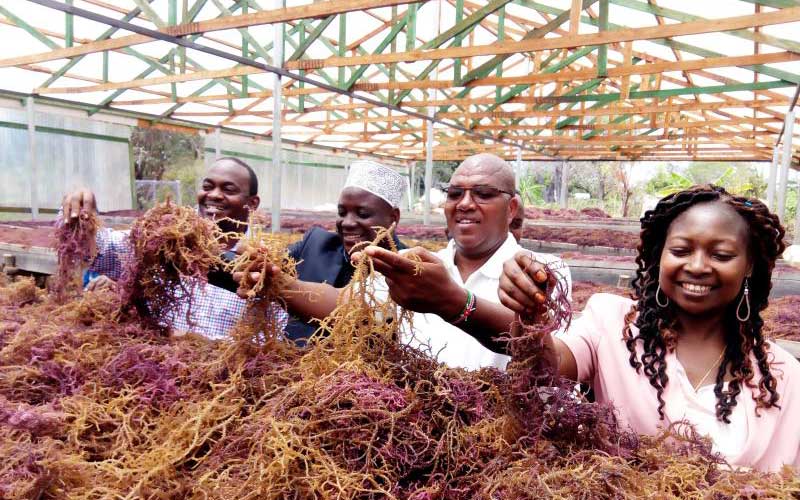×
The Standard e-Paper
Home To Bold Columnists

Farmers sort out seeweed in Kwale County, on Wednesday. [Kelvin Karani, Standard]
It would have been a great season for seaweed farmers in Kwale County had they not abandoned their farms in adherence to social distance protocols following the outbreak of Covid-19 pandemic.